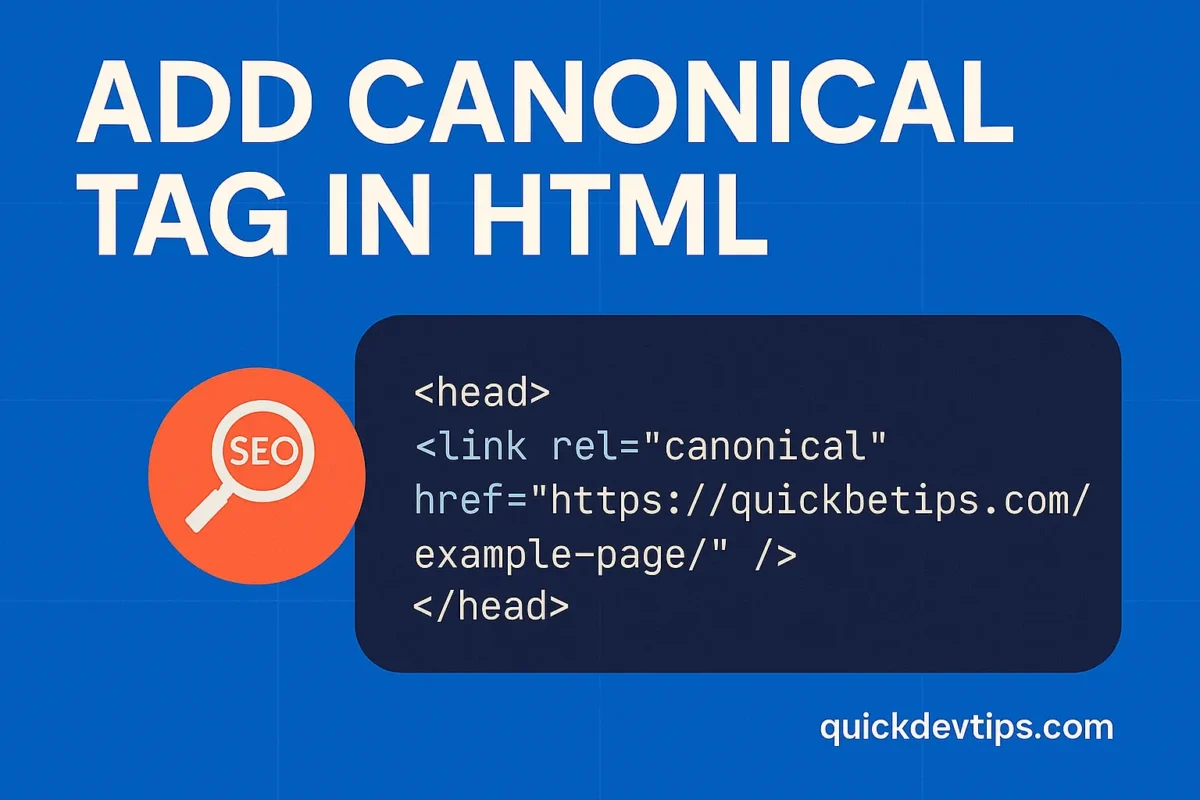Introduction
Add Canonical Tag in HTML to signal search engines the preferred version of a page. This prevents duplicate content issues and consolidates ranking signals for your site.
Canonical Tag Example Code
<head>
<link rel="canonical" href="https://quickdevtips.com/example-page/" />
</head>
How It Works
The rel="canonical" tag tells Google and other search engines that the specified URL is the original source. Even if similar content appears on multiple URLs, SEO value is credited to the canonical version.
Why Use This?
Without a canonical tag, duplicate pages may compete with each other, hurting your site’s rankings. Canonical tags ensure consistent indexing and better SEO performance.
Common Mistake
Setting a canonical tag that points to a different or wrong URL can harm SEO. Always ensure the canonical URL matches the intended primary page.
Pro Tip
Use absolute URLs (with https://) instead of relative URLs in canonical tags for reliable indexing across search engines.
